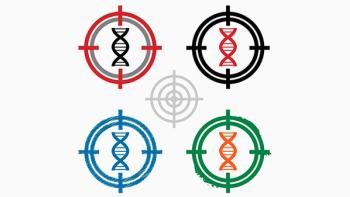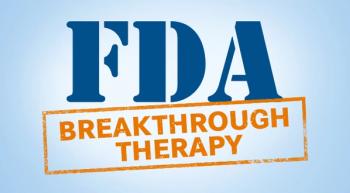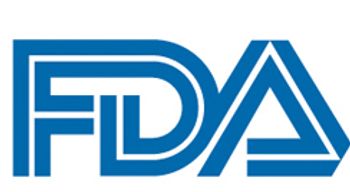
The FDA recommends that no new patients with advanced soft tissue sarcoma be treated with the combination of olaratumab (Lartruvo) plus doxorubicin.

The FDA recommends that no new patients with advanced soft tissue sarcoma be treated with the combination of olaratumab (Lartruvo) plus doxorubicin.

Neoadjuvant chemotherapy with dose-dense MVAC extends overall survival compared with other chemo regimens in bladder cancer treated with cystectomy.

In 2018, the V Foundation awarded $25 million for cutting-edge cancer research.

The FDA has approved the combination of ibrutinib (Imbruvica) and obinutuzumab (Gazyva) for the first-line treatment of patients with chronic lymphocytic leukemia (CLL) or small lymphocytic lymphoma (SLL).

Pembrolizumab (Keytruda) was found to reduce the risk of death by 31% in patients with PD-L1–positive (combined positive score [CPS] ≥10) advanced or metastatic esophageal or esophageal junction carcinoma who progressed on standard therapy, according to phase III findings of the KEYNOTE-181 trial.

Patients with previously untreated hepatocellular carcinoma (HCC) lived twice as long if they responded to TKI therapy vs. patients who did not achieve an objective response.

Overall survival in metastatic gastric/gastroesophageal junction cancer improved significantly with the use of TAS-102 combination therapy.

The combination of dabrafenib (Tafinlar) and trametinib (Mekinist) induced responses in nearly half of patients with BRAF V600E–mutated biliary tract cancer (BTC) who participated in a phase II basket trial that enrolled patients with BRAF V600E–mutated rare cancers.

New initiatives boost awareness and fundraising: Kicks to Beat Cancer, Craig Sager Style Day, Blizzard/Overwatch League Season Preview and WeRateDogs “H*ck Cancer” campaign.

Two-thirds of patients with untreated metastatic HER2-positive esophagogastric adenocarcinoma remained free of disease progression at 6 months with a combination of pembrolizumab (Keytruda), trastuzumab (Herceptin), and chemotherapy, a small clinical trial showed.

The FDA has granted umbralisib (TGR-1202) a breakthrough therapy designation for the treatment of adult patients with marginal zone lymphoma (MZL) who have received 1 prior anti-CD20 regimen, according to TG Therapeutics, Inc., the developer of the PI3K-delta inhibitor.

Preliminary findings from the SLI phase of the BEACON CRC trial show tri-drug combo has durable response in patients with BRAF V600E-mutant metastatic CRC.

The FDA has granted an approval to SB3 (Ontruzant; trastuzumab-dttb), a trastuzumab (Herceptin) biosimilar, for the treatment of patients with HER2-overexpressing breast cancer or metastatic gastric or gastroesophageal junction adenocarcinoma.

The FDA has issued a letter about a possible risk of increased mortality among patients with a type of arterial disease who have paclitaxel-coated implants.

Nivolumab (Opdivo) significantly improved overall survival (OS) versus chemotherapy in patients with unresectable advanced or recurrent esophageal cancer that is refractory to or intolerant of fluoropyrimidine plus platinum-based therapy, according to topline findings of the phase III ATTRACTION-3 study.

The FDA has accepted a supplemental biologics license application (sBLA) for atezolizumab (Tecentriq), carboplatin, and nab-paclitaxel (Abraxane) as a first-line treatment for patients with metastatic nonsquamous non–small cell lung cancer (NSCLC).

Payer reimbursement requirements, uncertainties in reform policy, and cost of new treatments viewed as top threats.

Half of patients diagnosed with advanced non-small cell lung cancer were alive 6.8 years after diagnosis, according to new study findings.

The cancer death rate declined 27% in the United States from 1991 to 2016, as reported by the American Cancer Society in its annual report, in part due to the significant decline in smoking and an increase in advances for early cancer detection and screening.

The FDA has granted a breakthrough therapy designation to zanubrutinib (BGB-3111) for use in some patients with mantle cell lymphoma.

The FDA has approved cabozantinib (Cabometyx) to treat hepatocellular carcinoma in patients who previously received sorafenib (Nexavar).

UGN-101 demonstrated a 57% complete response rate in some patients with urothelial cancer, according to findings from the phase III OLYMPUS trial.

A Taiwanese study focused on the relationship between gender and analgesic adherence in cancer patients and shows some surprising results.

The presence of HPV-16 and -18 were associated with a higher risk of developing high-grade cervical intraepithelial neoplasia (CIN) in women under the age of 30, study says.

John Mendelsohn, MD, an internationally acclaimed leader in the medical field died January 7 at his home in Houston, Texas at the age of 82.

An ongoing randomized phase III clinical trial is investigating the safety and efficacy of atezolizumab (Tecentriq) as an adjuvant treatment in patients with high-risk, locally advanced squamous cell carcinoma of the head and neck (SCCHN) after definitive local therapy, compared with placebo.

Waun Ki Hong, MD, a pioneering medical oncologist recognized for his practice-changing research in head and neck cancer, died at his home in California on January 2.

Axicabtagene ciloleucel (axi-cel) elicited a 2-year overall survival (OS) rate of 51% in patients with refractory large B cell lymphoma, representing a clear plateau in the survival curve.

Women who took part in a supervised exercise program during adjuvant treatment for breast cancer had better cardiovascular function than women who did not participate in the program, according to the findings of a study presented at the San Antonio Breast Cancer Symposium (SABCS).

In the minds of Americans, there is no more trusted profession than nursing, according to a global analytics company called Gallup, which recently announced that for the 17th year in a row, nurses topped the list by a landslide.